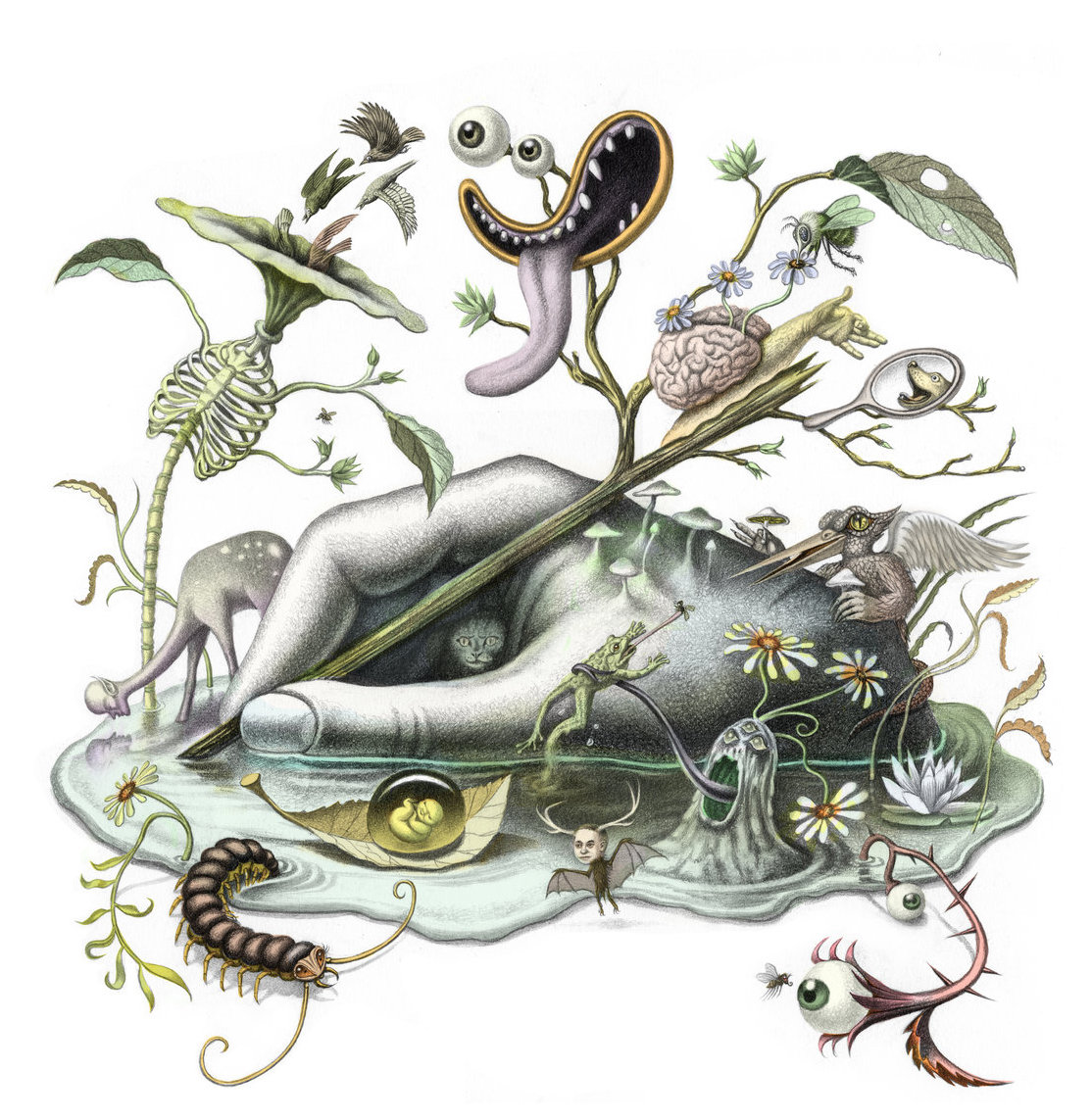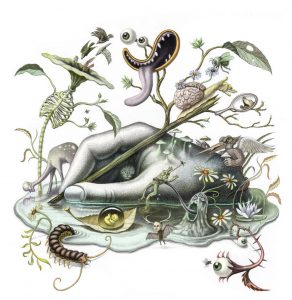As anyone who’s read a decent amount of Aleister Crowley’s work knows, he was no stranger to drug use – for serious medicinal purposes, recreation and spiritual research, with ether being a favored aid in the lattermost. There are a significant number of his writing stemming from such experiences. Ergo I think he might have appreciated author Michael Pollan’s essay in the New York Times Book Review of the problems he faced in properly putting his own experiences under the influence of LSD, psilocybin, ayahuasca and Sonoran Desert Toad venom (these being administered on separate occasions!) into the written word. Here’s an excerpt:
“I was reminded of an experience Oliver Wendell Holmes Sr. had on ether, in which he discovered, and managed to write down, ‘the one great truth which underlies all human experience.’ His notes, which he’d struggled to jot down in his drugged state, read: ‘A strong smell of turpentine prevails throughout.’
“Now, there are two ways to regard such an observation. The first is obvious, at least to our sober selves: as risible proof of the emptiness of chemically mediated ‘insight.’ O.K., fair enough. But might it be worth our while at least to try to imagine a mental state in which the smell of turpentine actually explains something? A state in which all our metaphysical ideas simply dissolve in the presence of overpowering sensory experience? That, it seems to me, is something for which the smell of turpentine is a decent metaphor.
“What I realized, reading over my own dubious epiphanies, is that there is an inside and an outside to a psychedelic experience, and that one way to write about it would be to honor both perspectives more or less simultaneously. I wouldn’t take sides, in other words, but would instead attempt to cultivate a measure of intellectual generosity, a kind of negative capability, toward my mental doings, however bizarre, and at the same time frankly acknowledge the reader’s skepticism, which in fact I shared. I would be of two minds. (This is a little like the memoirist, who recounts the naïveté of her younger self from the more knowing perspective of the grown-up author. But here it is not time but type of consciousness that separates the two voices.)”
Read the whole essay here:
https://www.nytimes.com/2018/12/24/books/review/psychedelics-how-to-change-your-mind.html.



It’s amazing to go to see this website and reading the views of all colleagues concerning this piece
of writing, while I am also keen of getting knowledge.
What’s up, every time i used to check webpage posts here early in the dawn, as
i enjoy to learn more and more.